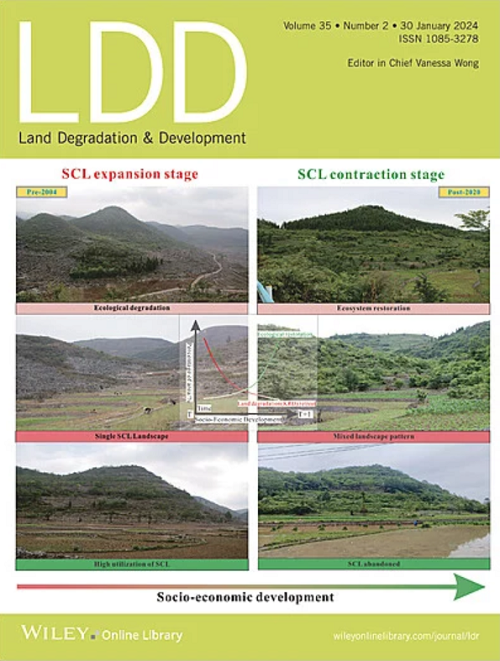Analysis of Potentials and Limitations of Safe Drinking Water in Rural Systems: A Colombian Perspective
IF 3.6
2区 农林科学
Q2 ENVIRONMENTAL SCIENCES
引用次数: 0
Abstract
Considering the meaning of the hydric resource regarding the formation of territories and its connection to agriculture development, present review paper aims to analyze the actual context of rural water systems in Colombia. For this, scientific information was acquired using Scopus through the search formula: “sustainability AND aqueduct” as well as information gather from national and regional public institutions websites with the intention to stablish an international and national context using meta-analysis PRISMA method. To determine the service cycle of the search formula, information was subjected to lineal regression by considering the determination coefficient (R2) and analyzing information taking as a reference the inflection point. Like that, each resulted document from the search were studied to then select those with grater relation towards the goals. Background information allowed to understand that aqueducts are fundamental organizations for sustainable development offering a reasonable access to clean water through its management and also showing that, regardless of existent challenges around its administration, it is necessary to implement policies that offer articulated and comprehensive solutions with participant elements as it is outlined on Colombia's National Development Plan, aiming to guarantee sustainable and equal access to water source.求助全文
约1分钟内获得全文
求助全文
来源期刊

Land Degradation & Development
农林科学-环境科学
CiteScore
7.70
自引率
8.50%
发文量
379
审稿时长
5.5 months
期刊介绍:
Land Degradation & Development is an international journal which seeks to promote rational study of the recognition, monitoring, control and rehabilitation of degradation in terrestrial environments. The journal focuses on:
- what land degradation is;
- what causes land degradation;
- the impacts of land degradation
- the scale of land degradation;
- the history, current status or future trends of land degradation;
- avoidance, mitigation and control of land degradation;
- remedial actions to rehabilitate or restore degraded land;
- sustainable land management.
 求助内容:
求助内容: 应助结果提醒方式:
应助结果提醒方式:


